Faculty
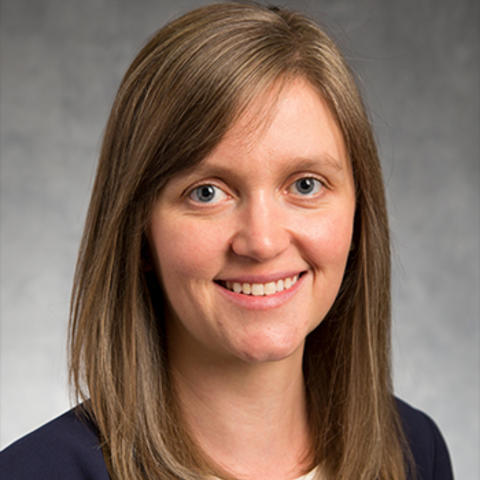
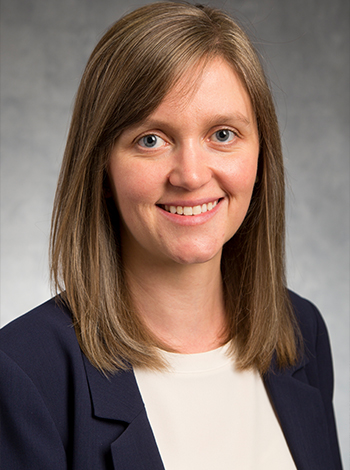
Bio
I completed my training as a Psychiatric-Mental Health Nurse Practitioner (PMHNP) at Boston College, Connell School of Nursing (2014), and my PhD at the University of Minnesota, School of Nursing (2022). My PhD research sought to advance the science of social functioning impairments in schizophrenia spectrum disorders to lead to better identification and treatment of those at risk for functional decline, using data-driven approaches to explore potential brain and behavioral treatment targets for improving social recovery rates. This work was funded by a National Research Service Award (F31-Diversity) from the National Institute of Mental Health and a UMN Clinical and Translational Sciences Institute TL1 training grant from the National Center for Advancing Translational Science. I am currently an Assistant Research Investigator at HealthPartners Institute, where I lead and contribute to health services research across a variety of mental health needs, including medical comorbidities for people with serious mental illnesses, early intervention in bipolar disorder and psychosis, suicide risk reduction, and opioid use disorder in primary care. I contributed to the development and implementation of a novel expansion of coordinated specialty care services for young individuals experiencing bipolar disorder and I serve on the Early Intervention Task Force of the International Society of Bipolar Disorders as an early-career member. In my clinical role as a Psychiatric-Mental Health Nurse Practitioner, I enjoy interdisciplinary teaching and caring for individuals experiencing first-episode psychosis and early bipolar disorders in our specialty programs. My overarching goal is to improve the lives of individuals experiencing serious mental illness through clinically meaningful research and health services transformation.
Selected Publications


Bio
I received my BA in psychology at the University of Minnesota. I completed my MA and my PhD in counseling and human development from the University of Iowa with a focus on Marriage and Family Therapy and a minor in Organizational Management.
I am a licensed psychologist and a Licensed Couples, Marriage, and Family Therapist. As a family therapist, I provide therapy through the developmental lifespan ages 5-95. I specialize in emotional dysregulation, mood disorders, PTSD--trauma-informed therapy, Eating Disorders, Family therapy, and psychotherapy supervision. I am committed to providing culturally-affirming care to diverse patients and families and providing advocacy in the community.
In my current faculty position, I teach Introduction to Psychotherapy, family and group psychotherapy courses and supervise psychiatry residents and interns in individual, group, and family therapies. As the assistant residency training director, I am in charge of coordinating the psychotherapy training in the Adult Psychiatry Residency program. I am the co-director of the Dialectical Behavioral Therapy program (DBT). I am active in national and local organizations including AADRT, NAMI providing workshops and community service. I am an active member of various committees in the department including the Diversity and Inclusion, RTC, and Doctors at the Borders.
Expertise
- Dialectical behavioral therapy (DBT)
- Behavioral activation
- PTSD
- Exposure therapy
- Individual, family, and group therapy
- Cognitive behavioral therapy (CBT)
Administrative Assistant
(for academic support only)
Teneshia Collins
coll1148@umn.edu
In the Media
- 2023: Featured in the last article of our series for National Mentoring Month titled, "Department mentor helps build her mentees’ professional identities.
- 2021: Featured in this MinnPost piece titled, “Stress around post-COVID reintegration can mimic social anxiety.
- 2020: An interview by Scripps National with Dr. Richelle Moen about how to effectively handle post-election conversations was syndicated by 36 news stations across the U.S.
- 2020: Interviewed Fox9 about how to talk with relatives and friends of a different political persuasion following the election
Research Summary
Borderline Personality Disorder Emotional Dysregulation & Self-Harm Teaching and Supervision
Clinical Summary
Individual, Family and Group Therapy; Dialectical Behavioral Therapy (DBT); Emotional Dysregulation, Eating Disorders
Education
Licensures and Certifications
Honors and Recognition
Professional Memberships
Selected Presentations
Contact
Address
Department of Psychiatry & Behavioral Sciences, F282/2A West Building, 2450 Riverside Avenue South, Minneapolis, MN 55454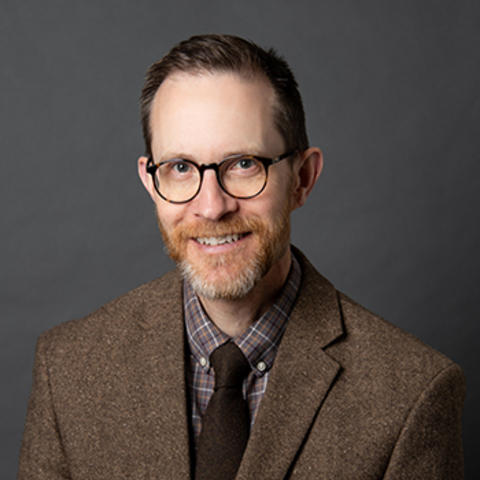
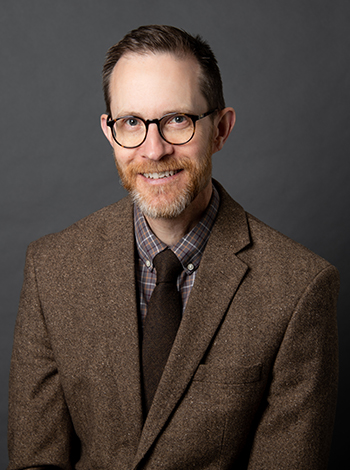
Bio
I am a Licensed Psychologist and Board Certified Behavior Analyst working with children, adolescents, young adults, and families to address a range of mental health and behavioral concerns that interfere with living a valued life including anxiety, OCD, disruptive behavior disorders, ADHD, ASD, mood disorders, and intellectual/developmental disabilities. I received my B.A. in Psychology from Colby College, earned my M.S. in Applied Behavior Analysis at Northeastern University, and my Ph.D. in Educational Psychology at the University of Minnesota where I also completed a postdoctoral fellowship in Leadership Education in Neurodevelopmental and Related Disorders (LEND).
Expertise
- Anxiety
- OCD
- Disruptive behavior disorders
- ADHD
- Autism spectrum disorder
- Mood disorders
- Intellectual/Developmental disabilities
Administrative Assistant
(for academic support only)
Teneshia Collins
coll1148@umn.edu
In the Media
- 2023: Featured in this article titled, “Strategic planning process in the Division of Child and Adolescent Mental Health creates a vision for the future."
- 2022: Featured in this article titled, “Using an evidence-based, flexible approach to treating young people with OCD.”
- 2022: Dr. Moore is the focus of this article titled, "Newest MIDB faculty member enjoys opening doors and giving hope to his adolescent patients".
Research Summary
My research interests center on the sustainability of evidence-based interventions in naturalistic conditions and include shared decision-making in complex clinical situations, factors that enhance adherence to interventions outside the clinic setting, and measurement tools and technology that connect patients’ lived experiences to clinical encounters.
Teaching Summary
I have enjoyed teaching and supervision throughout my career, and currently serve on doctoral committees involving research on the impact of technology on treatment adherence and the tailoring of interventions for caregiver-mediated regimens in outpatient settings.
Clinical Summary
Through clinical roles in inpatient settings, outpatient clinics, and family homes, my perspective is grounded in person- and family-centered principles, contextual behavior science, and positive psychology. My focus is simultaneously on the person seeking treatment and the systems in which they live, in pursuit of success for the individual and long-term sustainability of a higher quality of life. My greatest joys as a clinician emerge from partnerships with my patients that illuminate and strengthen the threads between values, actions, and meaningful outcomes in their lives.
Education
Fellowships, Residencies, and Visiting Engagements
Licensures and Certifications
Honors and Recognition
Professional Memberships
Selected Publications
Selected Presentations
Contact
Address
Masonic Institute for the Developing Brain, 2025 E River Pkwy, Minneapolis, MN 55414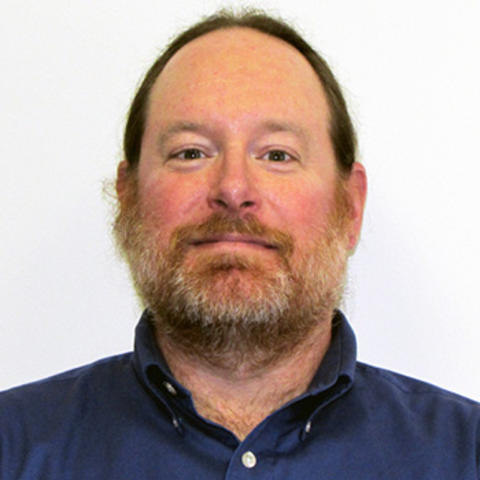
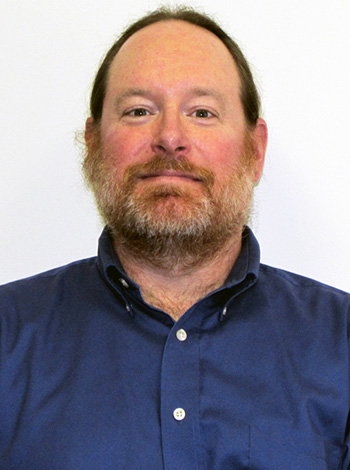
Bio
I received my BS in physics here at the University of Minnesota and my MS and PhD in nuclear physics at the California Institute of Technology in Pasadena, California. I completed a postdoctoral fellowship in the Medium Energy Physics group at Argonne National Laboratory in Lemont, IL, and then completed my medical physics residency at the Mayo Clinic in Rochester, MN.
I am a medical physicist with a research interest in applying novel magnetic resonance imaging methods to help understand the structural and functional differences in the brains of clinical populations. I am a member of the International Society for Magnetic Resonance in Medicine.
Within the University of Minnesota, I am a member of the 3T operations committee, which sets policy for the use of the 3-Tesla systems at the U’s Center for Magnetic Resonance Research (CMRR). I am also responsible for quality assurance monitoring of the 3T systems at CMRR and am available as a consultant to members of the 3T community. I am a Co-Investigator or collaborator on more than 140 unique ongoing or completed imaging studies involving more than three dozen principal investigators within the Department, two dozen principal investigators from other departments in the Medical School and University, and a dozen multicenter studies involving dozens of Universities from across the country.
Expertise
- Design, implementation, acquisition, and analysis of research MRI protocols in the study of brain structure and function
Administrative Assistant
(for academic support only)
Natasha Hampton-Anderson
nhampton@umn.edu
In the Media
- 2022: Coauthor of a study featured (although not named) in this MIDB article: "First Study to Evaluate Neurobiological Predictors of Interpersonal Psychotherapy for Depressed Adolescents".
Research Summary
Applying advanced MRI methods to better understanding structural and functional differences of the brains of clinical populations relative to controls. Developing MRI scanner quality assurance methods to quantify MRI scanner performance. Developing improved methods for performing Multi-center MRI experiments.
Education
Fellowships, Residencies, and Visiting Engagements
Honors and Recognition
Selected Publications
Selected Presentations
Contact
Address
Department of Psychiatry & Behavioral Sciences, F282/2A West Building, 2450 Riverside Avenue South, Minneapolis, MN 55454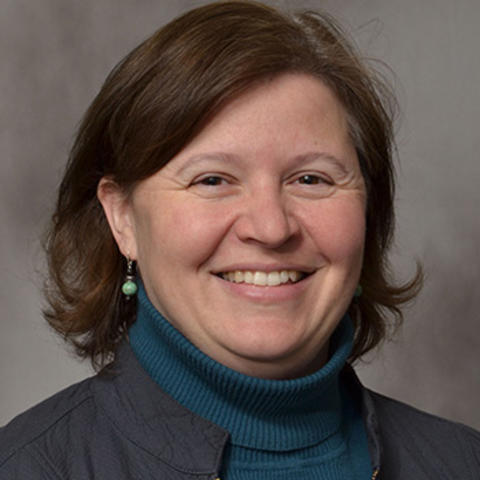
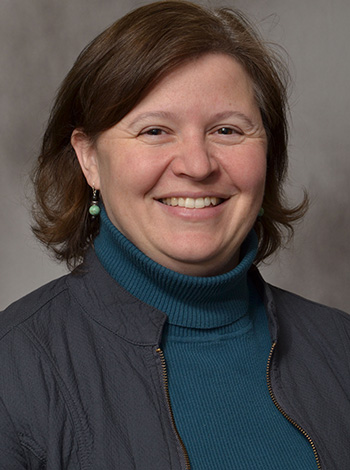
Bio
I received my BS in child psychology from the University of Minnesota. I completed an MA in psychology from Antioch University in Seattle, WA; and then a second MA and a PsyD in clinical psychology from the Minnesota Professional School of Psychology at Argosy University in Eagan.
I am a child and adolescent psychologist with a focus on psychosis risk identification and early intervention. I am particularly interested in psychosocial interventions, including psychotherapy and cognitive training.
Within the University, I train and supervise psychology graduate students and postdoctoral associates. I also provide didactics and therapy supervision to psychiatry residents and child and adolescent psychiatry fellows. I teach graduate-level courses on psychopathology and developmental psychopathology.
In the department, I am the assistant Child & Adolescent Psychiatry Fellowship Director and the Psychotherapy Director for the Child/Adolescent Psychiatry Fellowship.
Most recently, I received the 2020 Minnesota Psychological Association's Outstanding Graduate Faculty in Psychology Award.
Expertise
- Psychosocial interventions
Administrative Assistant
(for academic support only)
Molly Jokimaki
jokim004@umn.edu
Research Summary
Dr. Murray's research interests include psychosis risk identification and early intervention. Dr. Murray is particularly interested in psychosocial interventions, including psychotherapy and cognitive remediation.
Teaching Summary
Dr. Murray trains and supervises psychology graduate student and post-doctoral associates. She also provides didactics and therapy supervision to psychiatry residents and child fellows. She teaches graduate level course on psychopathology and developmental psychopathology.
Clinical Summary
Dr. Murray is a licensed Psychologist in Minnesota. She heads a specialty clinic for those at risk for psychosis.
Education
Fellowships, Residencies, and Visiting Engagements
Licensures and Certifications
Honors and Recognition
Professional Memberships
Selected Publications
Selected Presentations
Contact
Address
Department of Psychiatry & Behavioral Sciences, F282/2A West Building, 2450 Riverside Avenue South, Minneapolis, MN 55454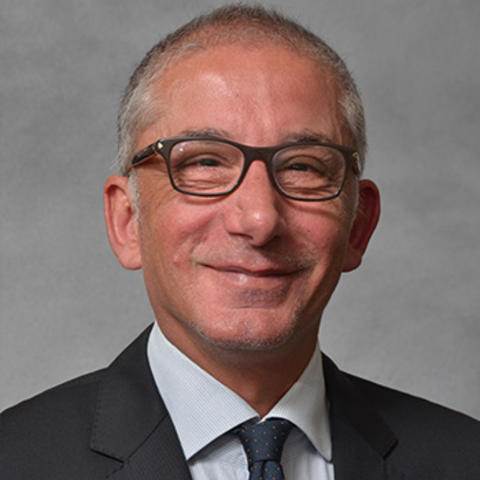
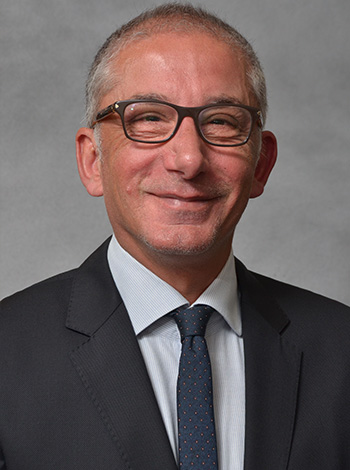
Bio
I received my Medical Degree from Saint Joseph University in Lebanon. I then completed an internship in Psychiatry at L’Institut Paul Silvadon, a Lacanian day hospital, and Hopital Charles Foix, both in Paris, France. I moved to Houston Texas in 1993 as a resident in Psychiatry at Baylor College of Medicine. I also attended the Houston-Galveston Psychoanalytic Institute’s psychodynamic psychotherapy course. I later joined the Medical University of South Carolina (MUSC) in 1997 where I completed a research fellowship in Functional Neuroimaging and Psychopharmacology and a Master of Science in Clinical Research. I was a faculty member from 1999 to 2011 with a specific focus on research in mood disorders and brain stimulation. From Summer 2011 to Spring 2017, I was the Chair of the Department of Psychiatry at the American University of Beirut Medical Center (AUBMC) where I helped develop the department's clinical, educational, and research portfolio.
My scientific interests lie in translational research of mood dysregulation and depressive disorders. My unique expertise is in functional neuroimaging and brain stimulation across various modalities [Transcranial Magnetic Stimulation (TMS), Vagus Nerve Stimulation (VNS), Prefrontal Cortical Stimulation (PCS), Deep Brain Stimulation (DBS), Electroconvulsive Therapy (ECT) and Focally Electrically Administered Seizure Therapy (FEAST)]. I have also conducted basic research and collaborated on health economic studies.
Within the medical school, I am the Fellowship Director of the MnDrive Neuromodulation Medicine Fellowship. I am also the executive vice chair for the department.
In addition to my scientific and academic contributions, I have been a strong advocate for the parity of mental health care coverage in Lebanon. I co-founded Embrace, a Non-Profit Organization to fight the stigma associated with mental illness and provide financial support for patients who cannot afford the cost of their treatments. Embrace launched the first Suicide Prevention Help Line in the Middle East.
Professional outreach and public service is also a key focus of my career. I am also a full member of the American College of Neuropsychopharmacology. To date, I have presented both nationally and internationally at over 70 conferences. I have received several awards including the NARSAD Independent Investigator Award and the Developing Scholar Award at MUSC.
Expertise
- Transcranial magnetic stimulation (TMS)
- Vagus nerve stimulation (VNS)
- Epidural prefrontal cortical stimulation (EpCS)
- Deep brain stimulation (DBS)
- Electroconvulsive therapy (ETC)
- Focally electrically administered seizure therapy (FEAST)
Administrative Assistant
(for academic support only)
Molly Jokimaki
jokim004@umn.edu
In the Media
- 2022: Featured in this Scientific American article titled, “What Is Vagus Nerve Stimulation For?”.
- 2022: Featured in this Minnesota Daily article titled, “UMN researchers to lead global study on impacts of vagus nerve stimulation".
Research Summary
Dr. Nahas's scientific interests lie in translational research of mood dysregulation and depressive disorders. His unique expertise is in functional neuroimaging and brain stimulation across various modalities [Transcranial Magnetic Stimulation (TMS), Vagus Nerve Stimulation (VNS), Epidural prefrontal Cortical Stimulation (EpCS), Deep Brain Stimulation (DBS), Electroconvulsive Therapy (ECT) and Focally Electrically Administered Seizure Therapy (FEAST)]. He has also conducted basic research and collaborated on health economic studies. He received funding from various sources, notably the National Institute of Mental Health, National Alliance for Research in Schizophrenia and Depression (NARSAD) and the Hope for Depression Research Foundation (HDRF).
Teaching Summary
Dr. Nahas's areas of teaching involve mood disorders; neuromodulation; and empathy.
Clinical Summary
Dr. Nahas's clinical interests involve treatment-resistant mood disorders; anxiety disorders; neuromodulation; and insight-oriented dynamic psychotherapy
Education
Fellowships, Residencies, and Visiting Engagements
Honors and Recognition
Professional Memberships
Languages
Selected Publications
Selected Presentations
Contact
Address
Department of Psychiatry & Behavioral Sciences, F282/2A West Building, 2450 Riverside Avenue South, Minneapolis, MN 55454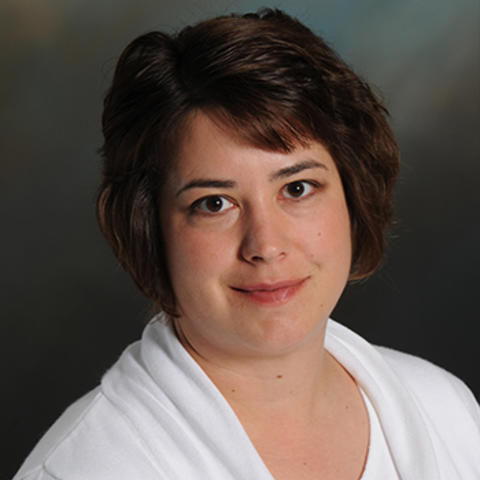
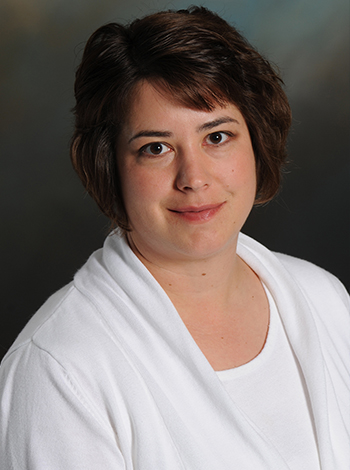
Research Summary
Dr. Nienow's research has focused on understanding the cognitive underpinnings of poor social functioning in schizophrenia, evaluating the efficacy of psychosocial interventions for serious mental illness, and elucidating the mechanisms by which psychosocial interventions exert an impact on symptoms, cognition, and functional status in patients.


Bio
I received my MBBS (Bachelor of Medicine, Bachelor of Surgery) from the University of Nigeria and have a background in Family Medicine. I completed my MPH in Maternal and Child Health, Psychiatry residency, and Child and Adolescent Psychiatry fellowship, here at the University of Minnesota.
I am a Board-Certified Child and Adolescent Psychiatrist who is committed to providing compassionate, patient-centered, and culturally competent care for children and adolescents with various mental health challenges such as Depressive disorders, Attention Deficit/Hyperactivity disorders, Anxiety disorders, Trauma, and Stressor - related disorders within various levels of care.
I am an Assistant Professor within the department and have clinical and research interests in psychopharmacology, cultural psychiatry, and global mental health (awareness, disparities, and care delivery). I am also the co-founder of both the UMP Child and Adolescent Psychiatry Bridging Clinic and the UMP Transitional Age Youth (TAY) Clinic.
Expertise
- Depressive disorders
- Attention deficit/hyperactivity disorders
- Anxiety disorders
- Trauma
- Stress-related disorders
Administrative Assistant
(for academic support only)
Teneshia Collins
coll1148@umn.edu
Education
Fellowships, Residencies, and Visiting Engagements
Licensures and Certifications
Honors and Recognition
Professional Memberships
Selected Presentations
Contact
Address
Masonic Institute for the Developing Brain, 2025 E River Pkwy, Minneapolis, MN 55414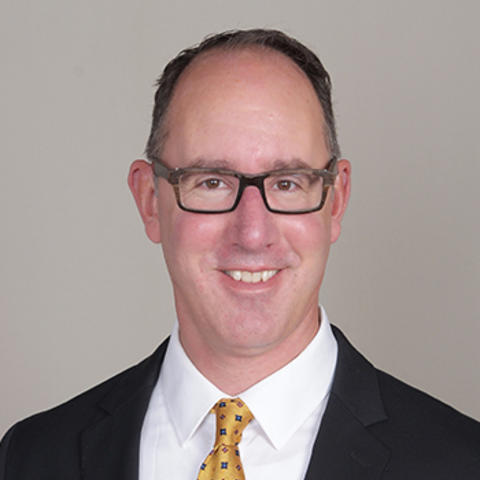
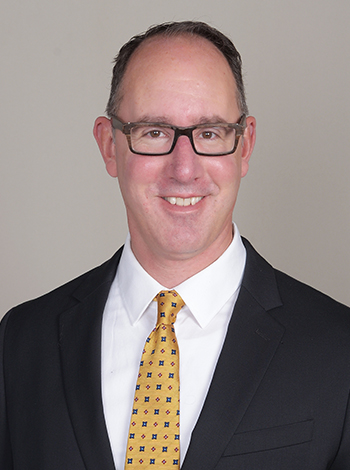
Contact
Address
Room F273-32450 Riverside Avenue
Minneapolis, MN 55454
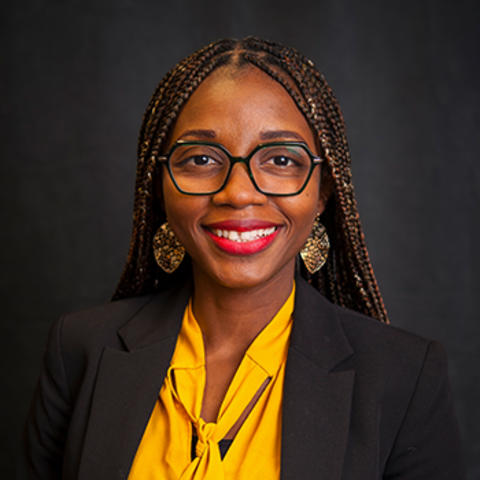
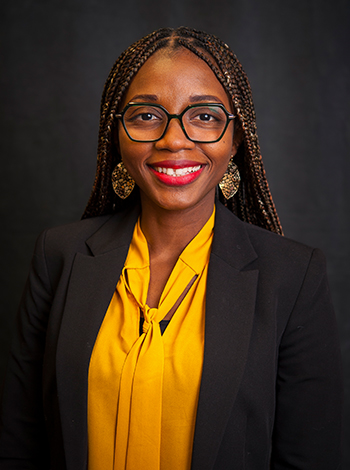
Bio
I am an Assistant Professor, Associate Residency Program Director, and Adult & Reproductive Psychiatrist in the Department of Psychiatry & Behavioral Sciences. I earned my MBBS degree from the College of Medicine University of Ibadan in Nigeria. I also hold a Master of Public Health from the University of Minnesota(UMN). I completed my psychiatry residency training at UMN and served as the Chief Resident.
I am passionate about reproductive psychiatry, leadership in academia, medical education, and building inclusive communities for trainees. In my clinical practice, I strive to center and amplify my patient’s voices. Within my work, I hope to contribute to reducing the gaps existing in perinatal mental health care.
One of the highlights of my job is working with trainees and learners. In my educational leadership role, I work on curriculum & didactics development and building sustainable systems for resident mentorship.
Administrative Assistant
(for academic support only)
Teneshia Collins
coll1148@umn.edu
In the Media
- 2023: Featured in this article titled, “Reproductive psychiatry gives new faculty member a unique focus.”
- 2023: Featured in this article titled, “Common themes emerge as members of the department think about Women in Medicine Month".
- 2023: Helped write this post for The Educational Commission for Foreign Medical Graduates’ blog titled, "Supporting International Medical Graduates in Minnesota".
Licensures and Certifications
- Minnesota State Medical License
- Diplomate, American Board of Psychiatry and Neurology
Education
Honors and Recognition
Professional Memberships
Selected Publications
Selected Presentations
Contact
Address
Department of Psychiatry & Behavioral Sciences, F282/2A West Building, 2450 Riverside Avenue South, Minneapolis, MN 55454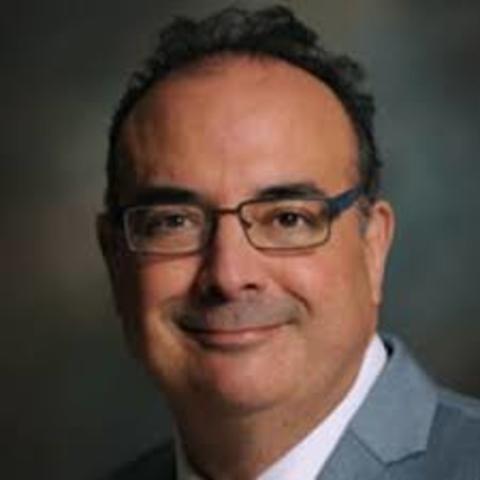
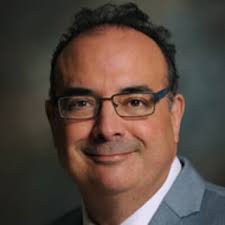
Bio
Dr. Pardo leads a research program which seeks to 1) elucidate the functional architecture of the human brain with particular emphasis on how dysfunction within neural networks relates to psychiatric disorders; 2) to identify neural systems mediating cognitive operations (e.g., attention, memory); 3) to define the pathophysiology of mental illness.
His team identified the anterior cingulate cortex as a locus of attentional operations (PNAS 1990; 87:256) and the major site of cognitive aging in otherwise healthy individuals (Neuroimage 2007; 35(3):1231. They have also applied brain imaging for early diagnosis of the dementias (Alzheimers Dement 2010; 6(4): 326).
These studies point to a high degree of genetic heterogeneity especially in psychiatric nosology. To address this issue, a major effort underway is the discovery of Mendelian genes (rare, high penetrance, simple inheritance). An international collaboration was established 1) to recruit multiplex, first-cousin marriages with a defined phenotype (e.g., psychosis); 2) whole genome sequencing of pedigree members; and 3) filtering for variants of interest, VOI (e.g., homozygosity mapping, evolutionary conservation, predicted damaged protein; absence in normative databases). Currently, the prime VOI is USP53 p.C228R. Preliminary molecular studies show this protein localizes to the hippocampus and dentate granular regions and interacts with GRIA2 and GRIP2—components of the AMPA synapse. These findings support the glutamate hypothesis of schizophrenia and motivate additional molecular studies of the variant.
Research Summary
Dr. Pardo leads a research program which seeks to elucidate the functional architecture of the human brain with particular emphasis on how dysfunction within neural networks relates to psychiatric disorders. The multidisciplinary approach (in close collaboration with the Brain Sciences Center, Department of Psychology, Department of Psychiatry, and GRECC) involves methods from cognitive neuroscience, including several imaging modalities, particularly PET and fMRI.His team identified the anterior cingulate cortex as a pivotal locus of cognitive aging in otherwise healthy individuals (Neuroimage. 2007 April 15; 35(3): 1231–1237). They now seek to understand the significance and pathophysiological basis of this finding in the context of systems neuroscience, biochemistry, and animal models. They are also using brain imaging for early diagnosis of the dementias (Alzheimers Dement. 2010 July; 6(4): 326–333). Given the current heterogeneity of psychiatric diagnosis, a developing interest is imaging genetics to identify genotypes with defined psychiatric phenotypes that may lead to improved models of mental disease. For additional information, see the Pardo laboratory website at http://james.psych.umn.edu/.
Clinical Summary
Mood disorders; treatment-resistant; neuroimaging
Contact
Address
VA Medical CenterOne Veterans Dr, Dept CNU 11-P
Minneapolis, MN 55417


Bio
After receiving my BA in Psychology from Yale University, I attended the University of Minnesota where I received my PhD in Clinical Psychology. I completed my predoctoral clinical psychology internship at the Yale School of Medicine. My NIH-funded research focuses on examining novel approaches to treating eating disorders by targeting the psychological and neurobiological factors that maintain these conditions. I am especially interested in identifying the role of emotion in eating disorder maintenance, as well as innovative approaches to clinical assessment. I serve as the Program Director of our multisite T32 Midwest Regional Postdoctoral Training Program in Eating Disorder Research. In addition, I work as a clinician in our Interventional Psychiatry Program where I provide psychotherapy to individuals with mood, eating, and anxiety disorders.
Expertise
- Behavioral interventions
- Psychotherapy
- Adult psychopathology assessment/diagnosis measures (e.g. SCID) for psychiatric disorders
- Eating disorders (e.g. EDE)
Administrative Assistant
(for academic support only)
Molly Jokimaki
jokim004@umn.edu
In the Media
- 2023: Featured in this article titled, “Celebrating the many ways that psychologists help us".
- 2023: Featured in this Medical School article titled, “Talking eating disorders with U of M,” to commemorate National Eating Disorders Week, February 27-March 5.
- 2023: Featured in this article titled, “Common themes emerge as members of the department think about Women in Medicine Month".
Research Summary
Eating disorders: Specifically treatment outcome, assessment, and diagnosis
Clinical Summary
Eating disorders